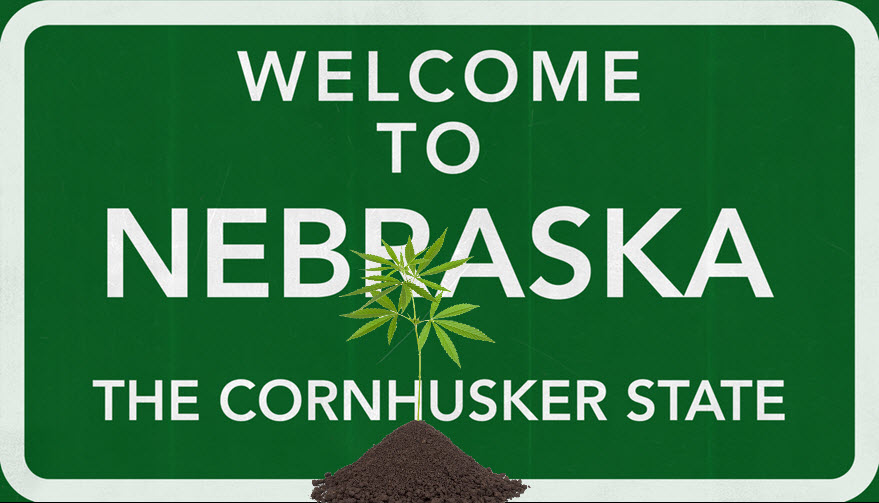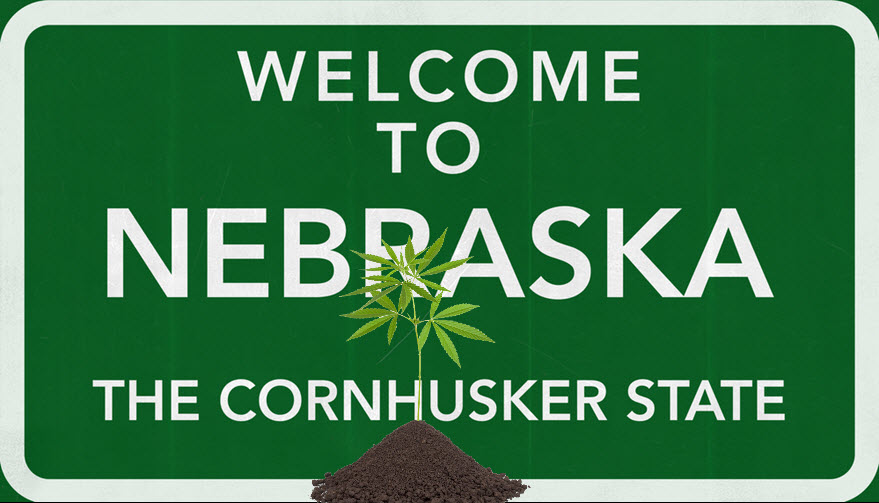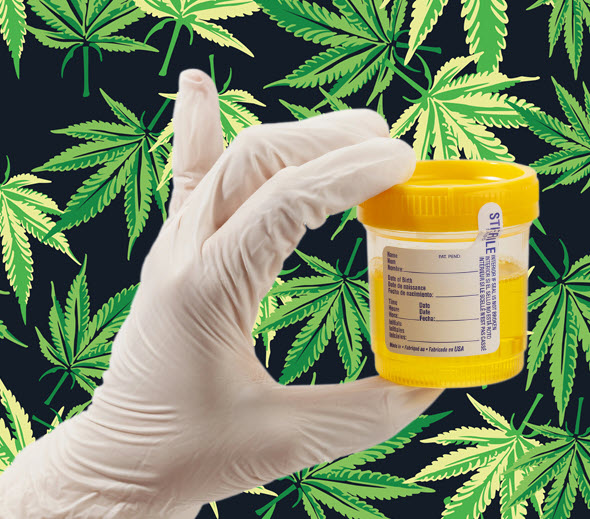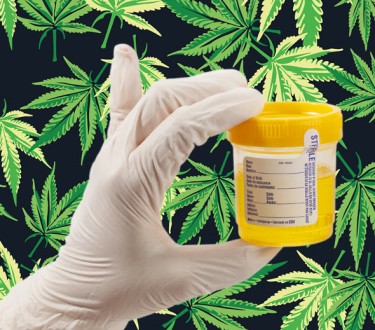Cannabis News
Will the 3rd Time be a Charm for Nebraska and Legalizing Medical Marijuana?
Published
11 months agoon
By
admin

Nebraskans for Medical Marijuana, an organization formed by a state lawmaker in Nebraska, is optimistic that the third time will be the charm and that medical cannabis will be legalized in the state.
Nebraskans for Medical Marijuana (NMM) turned in two petitions to the secretary of state’s office on Thursday in an effort to start the 2024 election process as Sen. Anna Wishart’s (D) reform measure remains stuck in committee.
Nebraskans for Medical Marijuana’s Third Attempt
In Nebraska, proponents of the drug are attempting a third time to have voters decide the matter. They gathered sufficient signatures to get it on the 2020 ballot, but the state Supreme Court disqualified the proposal because of a legal issue with its single subject. They also failed to gather the necessary number of signatures for updated petitions in 2022 as a result of a large loss of essential money.
Co-chair of the NMM campaign, Crista Eggers, stated in a news release the need to consistently petition the government. She emphasized the Legislature’s defiance in the face of tremendous support from more than 80% of Nebraskans across political lines, geographic regions, and age brackets.
“We have consistently come up empty-handed after more than ten years of advocating, educating, and attempting to follow the right channels through our elected leaders in the Unicameral,” Eggers said. “As a result, we will once more turn to voting as our means of advancement.”
Regarding the newly submitted petitions, Senator Wishart confirmed that the language remains the same as in 2022. She mentioned that the Secretary of State’s office would legally review the petitions.
Renewed Efforts and Revised Petitions for 2024 Ballot
The senator’s proposed legislation on medical cannabis underwent a hearing in the Judiciary Committee of the unicameral legislature in February but has not made any progress. She attributes the lack of action to changes in membership and turnover within the committee. A previous bill version faced a filibuster in the Republican-controlled legislature, ultimately leading to its stagnation.
Regarding the 2024 ballot effort, Wishart expressed determination, stating that they would file again. She believes perseverance is vital to success; every setback they encounter only strengthens their resolve.
Wishart also highlighted their experience from the previous year, where they realized they didn’t have to rely solely on a major donor for success. She expressed optimism about their achievements with over a year of collection time. They gathered 180,000 signatures in just three months through a volunteer-led effort with limited resources.
One of the initiatives submitted by the campaign on Thursday aims to ensure legal protection for doctors who recommend cannabis and patients who use and possess it. The initiative focuses on patients and seeks to establish a state statute that exempts them from penalties under state and local law when they possess limited quantities of cannabis for medical purposes with a written recommendation from a healthcare practitioner. Additionally, it allows caregivers to assist qualified patients in these activities.
The second measure proposes the creation of the Nebraska Medical Cannabis Commission, which would be responsible for registering and regulating individuals involved in the possession, manufacturing, distribution, delivery, and dispensing of medical cannabis.
To prevent potential legal obstacles similar to the single-subject challenge that hindered the previous reform effort in 2020, the complementary proposals have been carefully designed to maintain a narrow focus. The aim is to ensure that each initiative addresses a specific subject matter, minimizing the chances of derailment.
Despite the disappointment caused by the Nebraska Supreme Court’s ruling on the single subject issue in 2020, Adam Morfeld, co-chair of NMM and a former Nebraska senator, emphasized that the ruling provided valuable guidance for refiling a new initiative. After thoroughly examining the court’s decision, the campaign has developed two new statutory initiatives that they are confident will meet constitutional requirements.
To secure a spot on the November 2024 ballot, the campaign needs to gather approximately 87,000 valid signatures for each petition and submit them by July 5, 2024. Activists have announced their plan to commence a signature drive at the beginning of June.
Following the setback faced in 2022 regarding medical cannabis, there were initial considerations of pursuing an adult-use legalization initiative. However, the current focus of the strategy seems to be solely on medical marijuana.
Lessons Learned and Ongoing Challenges
There are just three states without a medical cannabis program, including Nebraska. However, the National Conference of State Legislators claims that some states have low-THC programs.
State Senator Anna Wishart speculated that there might have been an error the first time.
She said, “they sold themselves short when we thought we had to wait for a major donor. They fell short by less than 10,000 signatures on the two petitions last year. We accomplished that with volunteers in three months. Imagine what we can achieve in a year and a half.
In 38 of Nebraska’s 93 counties, petitioners must also collect the signatures of 5% of the registered voters. They attempted to sue over that in the past but were unsuccessful.
Support from Medical Professionals and Patient Advocacy Groups
As a potential treatment for several medical problems, medical marijuana is receiving more and more support from physicians and other healthcare professionals. Medical professionals and patient advocacy organizations have significantly contributed to Nebraska’s current medical cannabis petition campaign. The campaign has received strong support from organizations like the Nebraska Medical Association and regional patient advocacy groups, who have highlighted the potential advantages of cannabis-based medicines for treating patients’ pain and enhancing their quality of life. Their backing gives the petition more authority and informs the public about medical cannabis’s therapeutic potential.
Nebraskans for Medical Marijuana improves their argument for legalization by working with healthcare providers and patient advocacy organizations, highlighting the medical necessity and beneficial effects on patients’ lives. These professionals’ engagement strengthens the campaign’s legitimacy and gives it a powerful voice in promoting compassionate and fact-based healthcare solutions.
Bottom Line
Nebraskans for Medical Marijuana is on its third attempt to legalize medical cannabis in Nebraska. Despite previous obstacles, the organization remains optimistic and determined in its pursuit. Supported by medical professionals, patient advocacy groups, and a dedicated team of volunteers, they aim to gather the required signatures to secure a place on the 2024 ballot. The proposed initiatives focus on safeguarding doctors and patients and establishing regulations for the medical cannabis industry. While challenges persist, the campaign draws inspiration from past experiences and the unwavering belief in the power of public support. Nebraskans for Medical Marijuana continues to advocate for the advancement of medical cannabis, fueling hope for its legalization in Nebraska.
NEBRASKA KEEPS TRYING, READ ON..


Germany had a record 34.6 tons of cannabis imported in 2023 for medicinal and research uses, a significant increase from previous years. This inflow highlights how Europe’s biggest medical marijuana market—which is federally regulated—is changing, as seen by the increasing interest that foreign organizations are showing in Germany’s cannabis sector. Notwithstanding a little slowdown in growth relative to prior years, the notable rise in imports underscores the nation’s critical position in molding the world’s cannabis industry.
The surge in cannabis imports coincides with significant shifts in Germany’s regulatory framework, particularly the abolition of the previous cultivation quota system. This system, which restricted domestic cultivation to a select few companies, compelled the nation to heavily rely on imports to meet demand. With the introduction of more flexible conditions for cultivating medical cannabis under the new legislation, Germany aims to reduce its dependence on foreign imports, ushering in a potentially transformative era for the domestic cannabis industry.
End of Cultivation Quota System: A New Era for German Cannabis
The abolition of Germany’s growing quota system, which marks a watershed moment in the country’s cannabis industry, promises a paradigm shift in cultivation dynamics. Only three companies were awarded permits to develop medical marijuana under the previous system, following a stringent application process. As a result, their total output was limited to 10,400 kg over four years. As a result, the shortage of supplies from domestic farms forced a considerable reliance on imports to meet rising demand.
However, with the latest regulatory revision, enterprises may now apply directly to the Cannabis Agency for permission to produce medicinal marijuana. This decision marks a shift from the tight quotas of the past, providing a more streamlined and accessible route for firms to engage in cannabis growing. Peter Homberg, a major person in Germany’s cannabis business, believes that the increased flexibility in cultivation conditions will progressively reduce the need for foreign imports, opening the path for more self-sufficiency in the home market.
Once the growing quota system is removed, there will be a great deal of freedom for expansion and innovation in the German cannabis industry. By allowing a greater variety of companies to engage in cultivation, the regulation change fosters a more competitive environment that is advantageous to development and diversity. Moreover, this is a significant step toward aligning German cannabis regulations with evolving international standards, therefore enhancing the nation’s competitiveness in the global cannabis market.
While the transition away from import dependence may take time to materialize fully, the dismantling of the cultivation quota system sets the stage for a transformative journey towards self-sustainability. As companies seize the opportunity to expand their cultivation operations under the new regulatory framework, Germany inches closer to realizing its vision of a thriving and resilient domestic cannabis industry.
Imports in Flux: Dynamics of Germany’s Medical Cannabis Market
Germany is a significant importer of medicinal cannabis, but its position is under examination due to changing market dynamics and regulatory environments. In the past, the country has been a vital market for foreign exporters, providing profitable prospects in the largest federally regulated medicinal marijuana industry in Europe. Nonetheless, recent legislative modifications, such as the removal of marijuana from the list of illegal substances, portend a possible reorganization of Germany’s import market.
The elimination of the requirement for patients to get specific prescriptions for medicinal cannabis has simplified access to the drug by removing marijuana off Germany’s list of illegal substances. Standard prescriptions, on the other hand, are sufficient, streamlining the procedure and maybe stimulating demand in the medical cannabis industry. This legislative change is anticipated to rebalance the import-export dynamics, which might change the way cannabis goods enter Germany and change international export tactics.
It’s unclear how long Germany will continue to rely on cannabis imports despite these legislative changes. The timetable for reaching self-sufficiency is still unclear, even though it is expected that domestic cultivation and the elimination of regulatory obstacles would eventually lessen reliance. The future course of Germany’s medicinal cannabis market may be significantly influenced by strategic alliances and infrastructure investments made by industry players as they traverse this transitional period.
Fostering Domestic Growth: Germany’s Cannabis Cultivation Outlook
The cannabis industry is seeing a radical change as Germany allows for larger-scale commercial cultivation. The possibility of obtaining cultivation permits offers domestic businesses a special chance to profit from the growing market for medical marijuana. Demecan’s managing director, Constantin von der Groeben, is upbeat about the industry’s potential for expansion and notes that his company is prepared to surpass prior production quotas in light of the current legal environment. This shift toward homegrown production represents a calculated attempt to foster self-sufficiency in the German cannabis industry. Although imports would still be necessary to meet demand right away, the granting of crop licenses indicates a more extensive commitment to developing domestic production capacity. The sector prepares for a period of innovation and growth as stakeholders look at opportunities for extended cultivation activities.
This pivot towards domestic cultivation signifies a strategic endeavor to cultivate self-sufficiency within Germany’s cannabis market. While imports may continue to fulfill immediate demand, the issuance of cultivation licenses signals a broader commitment to fostering indigenous production capabilities. As stakeholders explore avenues for expanded cultivation initiatives, the industry braces for a period of innovation and expansion, poised to redefine Germany’s role within the global cannabis market.
Nevertheless, the timeline for achieving full autonomy in cannabis cultivation remains uncertain. While strides are made towards bolstering domestic production, Germany’s reliance on imports may persist in the short to medium term. As industry players navigate regulatory nuances and operational challenges, strategic partnerships and investments in cultivation infrastructure are poised to shape the trajectory of Germany’s cannabis industry, laying the groundwork for sustained growth and innovation.
Bottom Line
Germany’s record-breaking cannabis imports in 2023 underscore the nation’s pivotal role in shaping the global cannabis industry. Regulatory changes, such as the abolition of the cultivation quota system, signal a transformative shift towards self-sufficiency in domestic cultivation. While significant progress has been made, the timeline for achieving full autonomy remains uncertain. Strategic partnerships and investments will be instrumental in navigating regulatory complexities and ensuring sustainable growth in Germany’s evolving cannabis market.
HOW IS GERMANY IMPORTING WEED, READ ON…

The fluctuating levels of reported THC (tetrahydrocannabinol) in cannabis products have sparked discussions and concerns within the industry. Contrary to popular belief, the decline in tested THC levels does not necessarily indicate a decrease in potency. We examine the reasons behind this phenomenon, exploring how changes in testing protocols, sample selection, and laboratory practices contribute to these findings. As an industry, we cannot lose sight of the importance of standardized testing practices to ensure transparency and reliability in the market.
Just a few years ago, Justin Bieber boasted that he gets his weed from California. But recent testing indicates that the level of THC in California cannabis has fallen dramatically over the last year. Is it time for Bieber to find a new source? Probably not—but the industry shouldn’t shrug this news off either. Let’s look at what’s happening with THC testing across the country and consider what it means for consumers, cannabis businesses, regulators, and the industry as a whole.
Yes, tested THC levels are falling. Here’s why
California isn’t the only state that’s seen a drop in THC test levels. One recent article analyzed the THC percentage for 23 cannabis flower samples sold in Colorado, finding that the vast majority, 18 of 23, tested lower than the claimed range. Three samples contained less than half as much THC as their sellers claimed. Does that mean that weed is getting weaker? Not at all. Falling test results are far more likely due to changes in testing than to changes in the true levels of THC in cannabis plants.
Some of this has to do with sample selection. Every individual plant has a distinct genetic profile. Even in a controlled environment, each plant is influenced by the precise amount of light, nutrients, and water it receives (“epigenetic factors”). Some plants within a given crop will always be superior in quality, just as some flowers on any given plant will be average, while others will be exceptional. Cannabis producers should be taking a random sample from each batch for testing, but it’s often easy to—intentionally or otherwise—select more test samples from the best exemplars than from the run of the mill.
But it’s not all sampling error; labs may produce different test results from the same sample due to the protocols they use, or the stringency of their methods. Do some producers “lab shop” to find a lab that will report higher potency results? Almost certainly. Do some labs inflate their results to try to win more business? Again, almost certainly.
As states have gotten stricter about policing both sample selection and lab accuracy, tested THC results have fallen. But that doesn’t mean the product is any less potent.
Cannabis potency is complex. Does THC testing matter?
Cannabis isn’t as straightforward as something like alcohol. There’s no single value that determines how “strong” a product is or what effects it’ll have on a consumer. The potency of any particular cannabis product isn’t driven just by its level of THC but also by its overall cannabinoid and terpene profiles, the form of consumption, and the individual traits of the person using it.
Why does THC testing even matter, then?
At a consumer level—especially for those who use marijuana medically—differences in THC levels may influence the amount they consume, and the therapeutic or recreational benefits they receive. Consumers may also use THC test results as a benchmark for quality or value and therefore the price that they’re willing to pay for a product.
At the state level, discrepancies in lab results have led to heightened scrutiny. California has been fining cannabis businesses and suspending operator licenses for overreporting THC content, while Massachusetts is sending out “secret shoppers” to check on producers and dispensaries.
More importantly, though, inflated THC test levels damage everyone’s trust in the cannabis industry. THC isn’t the only thing marijuana is tested for, or even the most important; consumers, businesses, and regulators should all be able to trust the processes and results of tests for pesticides, toxins, and contaminants like mold. But why should anyone believe those numbers are reliable if THC levels are consistently overreported?
That leaves us caught in a double bind: consistency is all but impossible to achieve within the current fragmented legal structure, but without consistency, the industry isn’t taken seriously.
It takes an expert to legally navigate the cannabis industry
Every ethical player in the cannabis industry—from growers to retailers to consumers—would benefit from uniform standards in testing methods, controls, regulations, and oversight (not to mention legalized banking!). As it stands, cannabis businesses must try to reconcile a morass of conflicting, often confusing guidance, paying exorbitant taxes — at least for now –without receiving many of the benefits that other businesses receive. We have been working with cannabis industry businesses to navigate these issues for well over a decade. Give us a call if you think we could help.
Cannabis News
How Do You Get THC Out of Your System Fast?
Published
1 day agoon
May 2, 2024By
admin

Let’s imagine you just found out you have a surprise drug test at work and you “may or may not” need to flush THC out of your system as fast as possible by, say, Monday.
Detoxing from cannabis involves waiting until all traces of the substance have cleared the body, a process influenced by factors like usage frequency and quantity. If you need to flush all the weed out of your system within 10 days, order a Test Clear Kit here, they work well and have great customer reviews. But what is going on with your body and why does your body still have THC in it after smoking weed?
Cannabis comprises various compounds, notably tetrahydrocannabinol (THC) and cannabidiol (CBD). These substances bind to the same receptors as naturally occurring endocannabinoids, typically eliminated through urine and stool.
Detoxing from marijuana and managing cannabis use disorder involves a multifaceted approach. This includes goal setting with support, addressing withdrawal symptoms, managing physical and mental changes during detoxification, among other elements.
Given the individualized nature of substance use disorder, seeking professional addiction treatment is crucial. It allows for tailored detox strategies, managing potential side effects, handling marijuana overdose effects, and exploring diverse detox methodologies.
Understanding Marijuana Detox
Marijuana detox is the process of eliminating tetrahydrocannabinol (THC), marijuana’s psychoactive component, from the body. It is critical because THC can remain in the body’s fat cells even after marijuana usage has stopped, potentially resulting in positive drug test results or hampering efforts to achieve sobriety.
Marijuana detox is required to eliminate leftover THC from the system in those who are drug tested, such as sports, workers, or those in court. This protects against negative repercussions while also ensuring that testing protocols are followed.
The process of marijuana detox is essential to the goal of recovery. Removing THC from the body helps to terminate the cycle of reliance, lessen cravings, and make the road to recovery easier.
Additionally, persons suffering from marijuana-related health issues may require marijuana detox. Excessive or extended usage can be detrimental to both physical and mental health. Detoxification, which allows the body to rid itself of THC and its derivatives, may be able to mitigate any negative health consequences. Could you pass a THC drug test with 2 hours notice? Let’s find out…
What’s the duration of cannabis presence in the body?
As per American Addiction Centers, here’s the estimated duration for cannabis detection:
– Hair: Up to 90 days
– Urine: 3 days to over a month, contingent on usage
– Saliva: Approximately 48 hours
– Blood: Roughly 36 hours
Moreover, a 2017 study found that cannabinoids may persist in sweat for 7–14 days.
The duration of these compounds in one’s system varies widely. Another 2017 study highlights that the strain of cannabis used is a significant factor. Different strains contain varying cannabinoid levels, influencing their presence in the body.
Usage frequency also plays a role. Prolonged cannabis use prolongs cannabinoid traces in the body. This implies potential positive tests months after cessation; some have tested positive for THC even 3 months post-discontinuation.
Other factors impacting cannabis detection duration include:
– Consumption volume
– Exercise frequency and type
– Dietary habits
– Metabolic rate
– Body fat percentage
Given these variables, pinpointing the exact duration of cannabis, particularly THC, in one’s system after use can be challenging.
Optimal Methods for Weed Detox
Detoxifying from marijuana is multifaceted, with no singular “hack” to navigate through withdrawal, cravings, and other challenges.
Achieving the best results in marijuana detox entails considering various factors. Effective marijuana detox involves:
1. Attending to physical well-being by addressing common symptoms like aches and pains during withdrawal.
2. Maintaining a balanced diet with ample water intake, consistent healthy meals, and avoiding stimulants like caffeine.
3. Prioritizing mental health care to manage emotional adjustments in brain chemistry, such as anxiety or depression.
4. Implementing strategies to prevent relapse and cope with cravings through support groups, therapy, or treatment centers.
5. Engaging in therapeutic activities to foster new interests and habits, often facilitated through outpatient programs or professional assistance.
There’s no shortcut to hasten marijuana detox. However, practices like hydration, nutrition, warm showers, and exercise can aid in physical comfort. Yet, the body and mind still require time to purge THC remnants.
Rather than expediting detox, it’s crucial to utilize this period with medical guidance to establish a foundation for relapse prevention and address withdrawal symptoms.
Though treatments and medical detox programs exist, there’s no quick fix or magic remedy to instantly eliminate marijuana from the system or pass drug tests.
Symptoms like red eyes can be alleviated with cold compresses and eye drops.
Natural detoxification remains the most effective approach. The liver plays a pivotal role in removing marijuana and other toxins. Maintaining overall health supports liver function, aiding in toxin elimination and restoring bodily balance.
Various products claim to assist individuals in eliminating cannabis traces from their bodies, available in forms such as:
– Tablets
– Capsules
– Mouthwashes
– Shampoos
However, the effectiveness of these detoxes may vary depending on the type of drug test undergone. For instance, detoxes targeting urine cleansing might not yield desired results and could even result in a contaminated urine sample.
This occurs because urine-focused detoxes operate by purging the kidneys. While eliminating THC, they may inadvertently remove creatine and diminish urine’s natural density. Consequently, these factors could lead to the test appearing contaminated, necessitating a repeat test.
The Importance of Professional Marijuana Detox
Seeking marijuana detox with medical oversight is essential for safety and efficacy. Healthcare experts can craft personalized detox strategies tailored to an individual’s unique requirements, objectives, and medical background. They oversee the detox process, offer guidance, and manage any potential complications.
Supervised detox guarantees appropriate support and care, with healthcare professionals recommending additional treatments or therapies to address withdrawal symptoms and underlying issues contributing to marijuana usage.
Furthermore, medical supervision ensures the individual’s safety throughout detoxification. Abrupt cessation of marijuana may induce withdrawal symptoms, potentially uncomfortable or harmful. Professionals can employ measures to mitigate these symptoms and advise on managing cravings for sustained abstinence.
Bottom Line
THC detoxification is a complex process influenced by individual factors like usage patterns and metabolism. While natural methods offer effectiveness, seeking professional medical guidance ensures personalized care and safety. From managing withdrawal symptoms to addressing underlying issues, professional supervision enhances the detox journey. Remember, there’s no instant solution for THC detox, but with patience, proper care, and professional support, individuals can navigate towards sobriety and improved well-being successfully. By understanding the importance of medical supervision, individuals can embark on a journey of detoxification with confidence, knowing they have the necessary tools and support to achieve their goals.
PASS A DRUG TEST YOU HAD NO IDEA WAS COMING, READ ON…

Off To The Horse Races With Cannabis

The Future Of Cannabis After Rescheduling

A Happy Hippie’s Journey of Love, Cannabis, and Self-Discovery

But What about the UN Drug Treaties?

The Best Tips To Up Your Intimacy Game While High

What Can Consumers Expect From Marijuana Rescheduling

The Gilded Age Heiress Who Helped The Marijuana Movement

Tips For Your Body After Hours Of Sitting

Why Falling THC Test Results Matter

How Do You Get THC Out of Your System Fast?

Distressed Cannabis Business Takeaways – Canna Law Blog™

United States: Alex Malyshev And Melinda Fellner Discuss The Intersection Of Tax And Cannabis In New Video Series – Part VI: Licensing (Video)

Drug Testing for Marijuana – The Joint Blog

What you Need to Know

Cannabis, alcohol firm SNDL loses CA$372.4 million in 2022

NCIA Write About Their Equity Scholarship Program

City Of Oakland Issues RFP For Employee Training Programs

It has been a wild news week – here’s how CBD and weed can help you relax

A new April 20 cannabis contest includes a $40,000 purse

UArizona launches online cannabis compliance online course
Trending
-

 Cannabis News1 year ago
Cannabis News1 year agoDistressed Cannabis Business Takeaways – Canna Law Blog™
-

 One-Hit Wonders1 year ago
One-Hit Wonders1 year agoUnited States: Alex Malyshev And Melinda Fellner Discuss The Intersection Of Tax And Cannabis In New Video Series – Part VI: Licensing (Video)
-

 drug testing4 months ago
drug testing4 months agoDrug Testing for Marijuana – The Joint Blog
-

 Cannabis 1011 year ago
Cannabis 1011 year agoWhat you Need to Know
-

 Marijuana Business Daily1 year ago
Marijuana Business Daily1 year agoCannabis, alcohol firm SNDL loses CA$372.4 million in 2022
-

 Education1 year ago
Education1 year agoNCIA Write About Their Equity Scholarship Program
-

 Education1 year ago
Education1 year agoCity Of Oakland Issues RFP For Employee Training Programs
-

 Cannabis1 year ago
Cannabis1 year agoIt has been a wild news week – here’s how CBD and weed can help you relax












